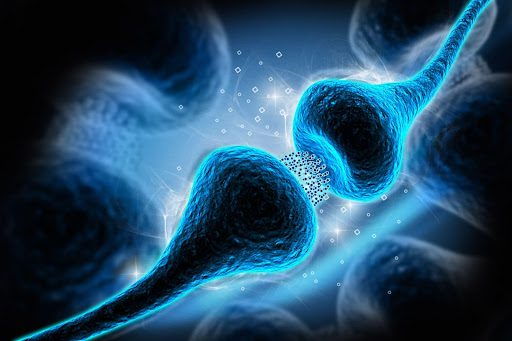For decades, studies looking into the role of neurotransmitters in mental health have linked the neurotransmitter serotonin and depression. Also referred to as “the serotonin deficiency hypothesis of depression,” this association has brought forth a great deal of interest in the way depression can develop, as well as the current focus on serotonin-centered antidepressant medication. Yet this theory has also garnered its share of criticism, with some researchers going as far as to claim there is no link between depression and serotonin. So, does the theory hold water, and how should one consider serotonin in relation to mental health? Read on to find out more on the subject.

The serotonin theory of depression originated in the 1960s. It focuses on the activation levels of the neurotransmitter serotonin within the central nervous system (CNS): At its core, this theory suggests that lower levels of active serotonin within the CNS cause the appearance of depressive symptoms.
The theory further specified that it is the lack of 5-HT serotonin receptors that causes lower levels of active serotonin, resulting in depression (for this reason, this theory is also sometimes called “the 5-HT hypothesis of depression”).
The serotonin theory of depression proceeded another hypothesis from the 1950s, called “the monoamine theory of depression,” which claims depression was the result of the monoamine oxidase enzyme breaking down an array of neurotransmitters, including serotonin, norepinephrine, and dopamine. The serotonin theory of depression eventually overtook the monoamine theory in terms of widespread acceptance among researchers and other members of the mental health community.
The earlier monoamine theory led to the introduction of first-generation antidepressants to the general public during the 1950s. This class of medication blocks the activity of the monoamine oxidase enzyme, thereby raising the activation levels of all affected neurotransmitters.
Though first-generation antidepressants were found to be effective, side effects such as high blood pressure caused a decline in their popularity. These days, they are mainly prescribed for treatment-resistant depression and not as a first-line treatment.
In the 1980s, a new form of antidepressant was made available, which was based on the serotonin theory of depression. Selective serotonin reuptake inhibitors, or SSRIs, are second-generation antidepressants that specifically target serotonin: By keeping the neurotransmitter active for longer periods of time, SSRIs manage to extend its effect on the CNS.
The focus on serotonin provided by SSRIs was found to alleviate symptoms of depression. Additionally, SSRI side effects were found to be much more tolerable than first-generation antidepressants, making it easier for patients to continue taking them.
As a result of their combined high efficacy and tolerability, the FDA has cited SSRIs as a first-line treatment for depression, with SSRIs continuing to be widely prescribed by psychiatrists for this condition.
While many depression serotonin studies have claimed that one’s level of serotonin can affect their chances of developing depression, critics of the serotonin theory for depression have raised three important points:
Even those emphatically in favor of the serotonin theory for depression admit that it remains unclear how, exactly, serotonin works. More specifically, researchers are still looking into its effects on one’s mood, particularly when it comes to depression.
The serotonin theory offers a chemical, biological approach to depression. Yet a number of other risk factors have also been shown to cause this condition. They include:
Studies on all of the above risk factors have shown that it is not a low level of serotonin alone that can bring about depression, and that its influence on one’s well-being should be taken as less definitive as has been previously believed.
In 2022, Nature published a comprehensive meta-analysis on serotonin research conducted over the last 50 years. The analysis study came to two major conclusions:
The analysis sent a shockwave through the mental health community, with many wondering whether patients and professionals have been deceived for decades that the cause of depression lies primarily in lower levels of serotonin.

The serotonin theory for depression, along with the above-mentioned depression-serotonin study, have raised a great deal of discussion over the role serotonin actually plays in the appearance of depression. The answer, it seems, was partially there all along, in the form of depression efficacy rates.
In 2006, a study funded by the National Institute of Mental Health (NIMH), found that only a third of participants with depression achieved full symptom remission on an SSRI medication — despite the fact that SSRIs are generally considered fairly effective.
Rather than detract from SSRI efficacy, the results of this (also much-touted) study underscores that depression has never been fully understood through a neurological lens. It is not merely caused by the lack of sufficient serotonin, nor is it purely a physiological disorder. Depression is, and always has been, a condition of the mind, rooted in deeply painful emotion, and understood through our own experiences of it.
For this reason, is it unsurprising that depression cases tend to respond well to psychotherapy treatment, particularly psychodynamic therapy. Such treatments allow both patient and therapist to approach the experiences, mental processes, and outlook that have all shaped the patient’s well-being, both in relation to any depressive symptoms they may have, and beyond.
As depression continues to receive attention in research and the field, it is important to remember that this disorder can emerge through a multitude of influential aspects of one’s life. As a result, treating depression necessitates an open mind, and a willingness for exploring the different options now available.